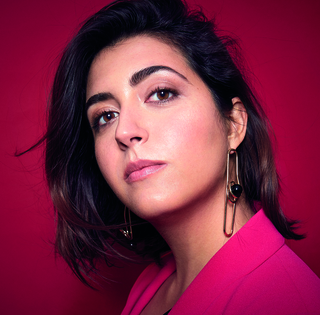
Düsseldorf is the capital city of North Rhine-Westphalia, the most populous state of Germany. It is the second-largest city in the state and the seventh-largest city in Germany, with a population of 644,280.

The Ruhr, also referred to as the Ruhr area, sometimes Ruhr district, Ruhr region, or Ruhr valley, is a polycentric urban area in North Rhine-Westphalia, Germany. With a population density of 2,800/km2 and a population of over 5 million (2017), it is the largest urban area in Germany. It consists of several large cities bordered by the rivers Ruhr to the south, Rhine to the west, and Lippe to the north. In the southwest it borders the Bergisches Land. It is considered part of the larger Rhine-Ruhr metropolitan region of more than 10 million people, which is the third largest in Europe, behind only London and Paris.

Dortmund is the third-largest city in North Rhine-Westphalia after Cologne and Düsseldorf, and the eighth-largest city of Germany, with a population of 588,250 inhabitants as of 2021. It is the largest city of the Ruhr, Germany's largest urban area with some 5.1 million inhabitants, as well as the largest city of Westphalia. On the Emscher and Ruhr rivers, it lies in the Rhine-Ruhr Metropolitan Region and is considered the administrative, commercial, and cultural center of the eastern Ruhr. Dortmund is the second-largest city in the Low German dialect area after Hamburg.

The Rhine-Ruhr metropolitan region is the largest metropolitan region in Germany, with over ten million inhabitants. A polycentric conurbation with several major urban concentrations, the region covers an area of 7,110 square kilometres (2,750 sq mi), entirely within the federal state of North Rhine-Westphalia. The Rhine-Ruhr metropolitan region spreads from the Ruhr area (Dortmund-Bochum-Essen-Duisburg) in the north to the urban areas of the cities of Mönchengladbach, Düsseldorf, Wuppertal, Leverkusen, Cologne, and Bonn in the south. The location of the Rhine-Ruhr at the heart of the European Blue Banana makes it well connected to other major European cities and metropolitan areas such as the Randstad, the Flemish Diamond and the Frankfurt Rhine Main Region.

Unna is a city of around 59,000 people in North Rhine-Westphalia, Germany, the seat of the Unna district.
Dong-Hyek Lim is a South Korean classical pianist. Lim has previously studied with Arie Vardi at the Hochschule für Musik und Theater in Hanover and received the Samsung Culture Scholarship and the Ezoe Scholarship. He currently studies with Emanuel Ax at the Juilliard School.

The Ruhrtriennale, also known as Ruhr Triennale, was founded in 2002 and is a music and arts festival in the Ruhr-area of Germany which runs between mid-August and mid-October, and happens in three-year cycles. The topics of the festival focus on contemporary social and global upheavals.

The Kissinger Sommer is a classical music festival held every year in the summer in the city of Bad Kissingen in Bavaria, Southern Germany.

The discography of classical pianist Lang Lang includes nine studio albums, four live albums, one single, one compilation, two soundtracks, and three contributions to releases not under his name. His first album was released in 2000 under Telarc International Corporation. In 2003, he signed a contract with Deutsche Grammophon and released several albums with them. In February 2010, Lang Lang signed with Sony Classic.

Sophie Pacini is a German-Italian pianist.
Ching-Yun Hu is a Taiwanese born classical pianist, winner of the 2008 Arthur Rubinstein International Piano Competition, Founder and Artistic Director Yun-Hsiang International Music Festival in Taipei and Winner of the 2012 Golden Melody Award for Best Classical Album.

Olga Scheps is a German pianist, who currently resides in Cologne, Germany.

German-Russian classical pianist Olga Scheps has released ten studio albums and one live album. Her first live album was recorded and published in the Edition Klavier-Festival Ruhr in cooperation with the Fono Forum magazine under CAvi-music in 2009.

The Munich Film Archive, in the Munich Stadtmuseum, is one of eight film museums in Germany. It has no showrooms and is limited to screening the films in a single cinema with 165 seats, as well as collecting, archiving, and restoring film copies. All analog and digital formats can be shown.

Mat Hennek is a German fine art photographer.
Alexei Zuev, born 28 April 1982 in Leningrad, is a Russian pianist.
Christian Seibert is a German classical pianist who recorded the complete piano works by composers such as Krzysztof Meyer. He founded the Kleist Music School in Frankfurt (Oder).
Juan Carlos Fernández-Nieto is a Spanish-American pianist. He was described by Westdeutsche Allgemeine Zeitung as "A musical sculptor who chisels out melodic lines with sharp contours". and "He set off a firework on the 88 piano keys which excited the audience in the Kulturzentrum right from the start"

David Kadouch is a French pianist and chamber musician. His international career began early when, at age 13, he was in concert with Itzhak Perlman in New York. A finalist in several competitions, he was named Young Artist of the Year at the International Classical Music Awards (ICMA) in 2011. He has performed and recorded with a focus on chamber music and contemporary music.
Eva Gevorgyan is a Russian-Armenian pianist and composer.













